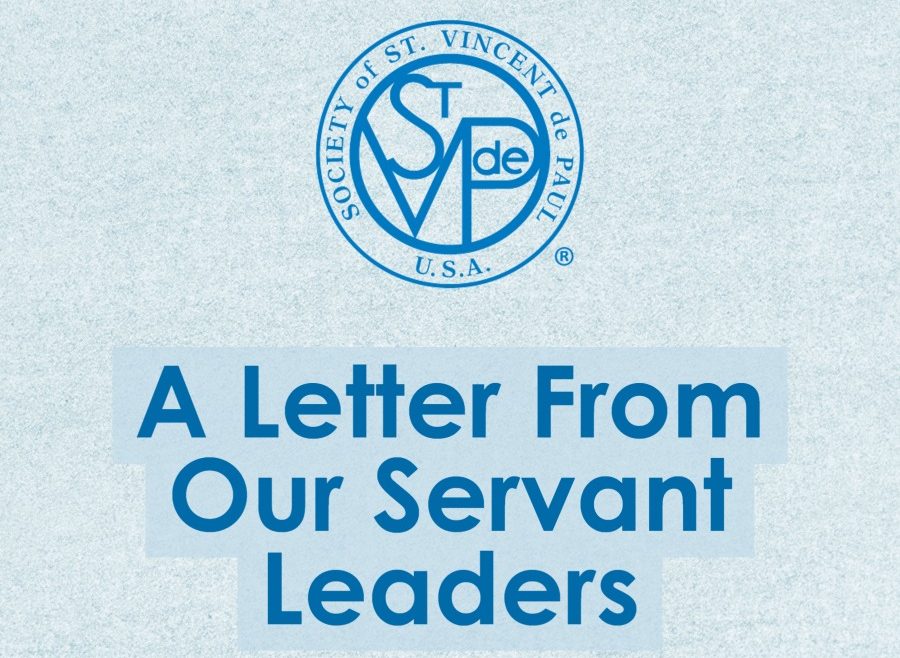Dear Vincentian Friends,
Our mission statement says that we are “A network of friends inspired by Gospel values.” True to the vision of our principal founder, Blessed Frédéric Ozanam, our network of charity has come to embrace the whole world. Administering that global network and making it feel real to Vincentians is the work of the Council General International. To strengthen the bonds of this network, our tradition going back to our first President General, Emmanuel Bailly d’Surcy, has been for the President General to write an annual Circular Letter to all members.
Renato Lima d’ Oliveira, our current President General, has preserved that tradition and recently released a Circular Letter that will be the final of his presidency. You can find the full text here: 2023 PGI Circular Letter.
Please take the time to read the letter. Renato covers many topics of interest to all. The 17 pages of this year’s Circular Letter are organized around seven topics. Brother Renato, who will be leaving his position on September 9th, has given the text a farewell tone, while at the same time sharing reflections on his seven years in office. The letter would be a good topic for discussion at one or two of your Conference meetings.
I am grateful for the tireless servant leadership of Brother Renato, who constantly demonstrates a deep commitment to serving the poor and to growing in holiness. Below, I include a small sample from the beginning and end of his letter.
Serviens in spe,
Ralph Middlecamp
National Council President
Excerpt from International President General, Renato Lima de Oliveira’s Circular Letter
Praise to our Lord Jesus Christ! Once again, I am delighted to write, for the seventh consecutive year to my dear fellow members of the Society of Saint Vincent de Paul around the world, as well as to new members, volunteers and staff at our various projects, Councils and Conferences. May our Blessed Lady show us the path of charity promoted so well by Saint Vincent de Paul.
This year, 2023, I end my term of office as the 16th President General International of our International Confederation, an honor for which I was never properly prepared. Only with God’s help was I able to reach the end of this path, with many successes on the basis of our 10-point strategic plan, thanks to the dedicated work of the International Board and the Superior Councils. …
So as I always say: the writing of a Circular Letter is a gift from God for any President General. I hope that members of our Society can reflect on the sections of this Circular Letter, and I count on you for any comments, criticisms and suggestions, by e-mail: cgi.circularletter@gmail.com. …
The Lord Jesus accompanies me throughout my life, in both joyful times and in the difficult times. The good God protects me every day, washes away my flaws, corrects my mistakes, calms my heart, reduces my anxiety, cares for my family, and makes our plans for life prosper. So I always ask the same thing: pray for me, that I may continue in this fine mission as President General for you all.
I also ask prayers from now on for the 17th International President General who will take up their role on 9 September 2023. To my successor, whoever it may be, I promise I will be a loyal and discreet servant, always available when called upon for any task. I urge my successor to remember that our best response to critics is forgiveness, service, love and goodness, giving to God all the difficulties we experience. Only thus will we gain the Paradise which we so long to reach some day.
I wish to express my deep gratitude to the Board of the Council General, who have helped me govern the Society of Saint Vincent de Paul in the past seven years. As well as the Board, some 100 members belong to the various departments, committees, vice-presidencies, working groups or missions of the Council General. And at our head office, located in Paris, we rely on our well prepared and experienced members of staff. For Father Andrés Motto, our beloved spiritual adviser, I have no words to thank him for the advice he has given us. I also have to express my special thanks to all the territories forming our Confederation. Without the support of the Superior Councils, it would be impossible to be a good President General. A warm embrace to everyone, and see you soon!
Brother Renato Lima de Oliveira
16th President General International






